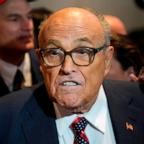Spirit Airlines is cheap, and CEO Ben Baldanza's proud of it
— -- For a company as controversial as Spirit Airlines, one might expect someone as flamboyant as Virgin Atlantic Airways' Sir Richard Branson at the helm. That's not Ben Baldanza, 47, the CEO of Florida-based Spirit, which bills itself as the country's first "ultralow-fare" airline.
Unlike Branson, whose escapades have included hot-air ballooning across the Atlantic Ocean, Baldanza's idea of a good time is playing board games at home with his wife, Marcia, and 2-year-old son, Enzo.
"We're more 'staycation' kind of people," says the career airline executive, who owns about 1,700 board games.
Baldanza says very little of his personality is part of the brand and image of Spirit, a private airline known for loud ad campaigns with sexual innuendoes, ads in passenger cabins and on flight attendants' aprons, and, most of all, very cheap airfares. A typical one: $54 one way from Fort Lauderdale to Freeport, the Bahamas.
"We're a small airline, so we have to be a little different, a little avant-garde," says Baldanza, who received a master's degree in transportation economics from Princeton University and previously worked at US Airways, Continental, Northwest and American airlines.
Spirit has kept its costs lower than most airlines, which has enabled it to squeeze out a $17 million profit during this year's first quarter — when other carriers were swimming in recessionary red ink. In 2008, it reported a $16 million loss, much smaller than most competitors.
Spirit flies to 39 cities with 28 new Airbus jets and has aggressively expanded into Latin America and the Caribbean in recent years. It has 53 daily departures from Fort Lauderdale, and about 10 from Detroit and New York's LaGuardia airport.
It's a leader in à la carte pricing that has swept the industry, charging extra for almost everything. Baldanza proudly says Spirit was the first airline to charge for a checked bag and "to stop pouring water for free."
Its sales policies and customer service, though, have enraged many fliers and put the carrier in hot water with government regulators.




